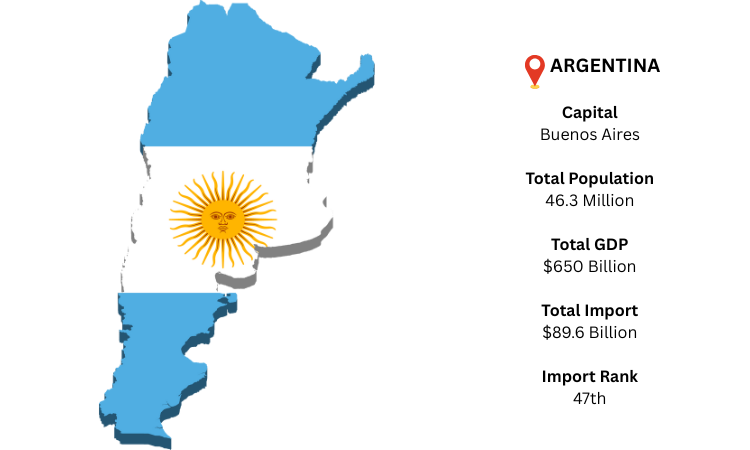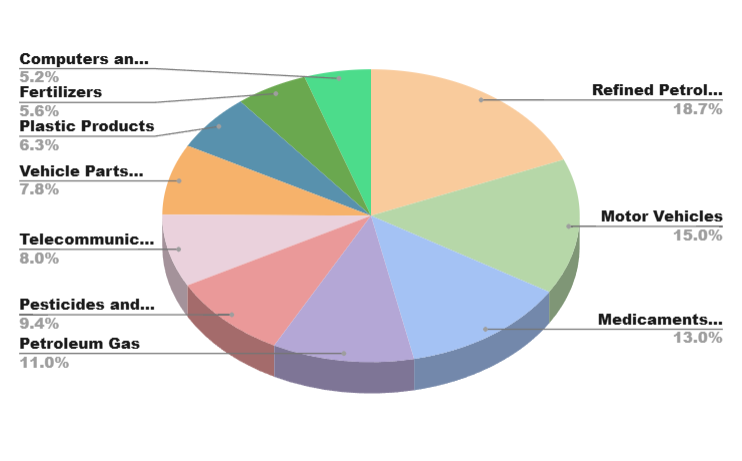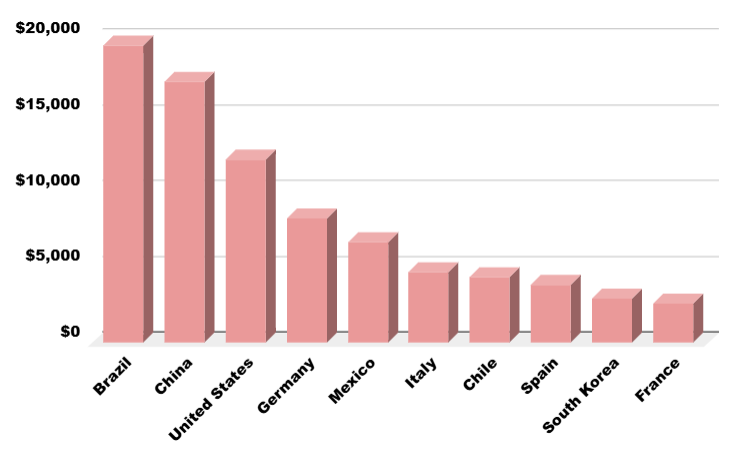Argentina is a country in southern South America that shares borders with Brazil, Uruguay, Paraguay, Bolivia, and Chile. Its capital and greatest city, Buenos Aires, is the administrative and economic hub of the country. It is anticipated that Argentina's GDP will reach USD 650 billion by 2024. Argentina is the 47th largest importer in the world in terms of international commerce. According to current data, Argentina's top export destination is Brazil. In 2024, as per Argentina Import Data, the country's overall import value is projected to be around USD 89.6 billion, with refined petroleum being the largest imported commodity.
Argentina continues to play a significant role in both regional and global commerce, even in the face of periods of economic turmoil and high inflation. According to Argentina Customs Data, the import pattern of the nation indicates a significant reliance on agricultural technologies, fuels, machinery, and chemicals to sustain its domestic and industrial sectors. Argentina is a major import center in South America thanks to its advantageous Atlantic coastline and active trade ties with its neighbors.



